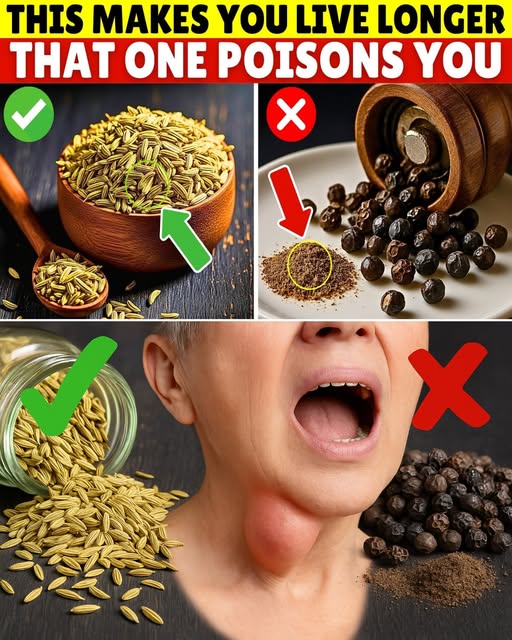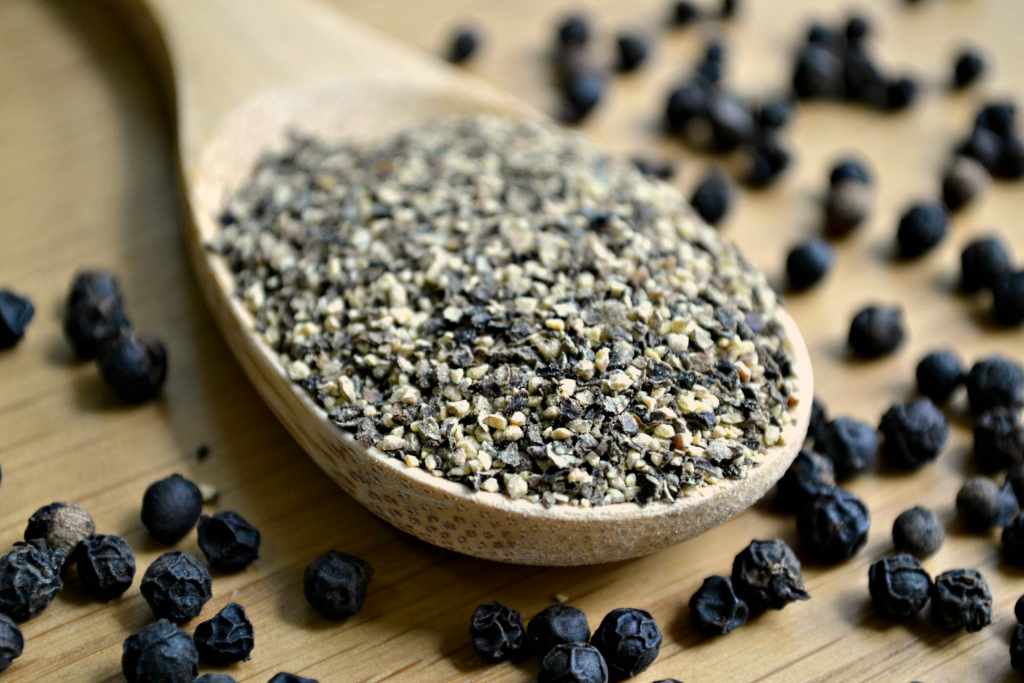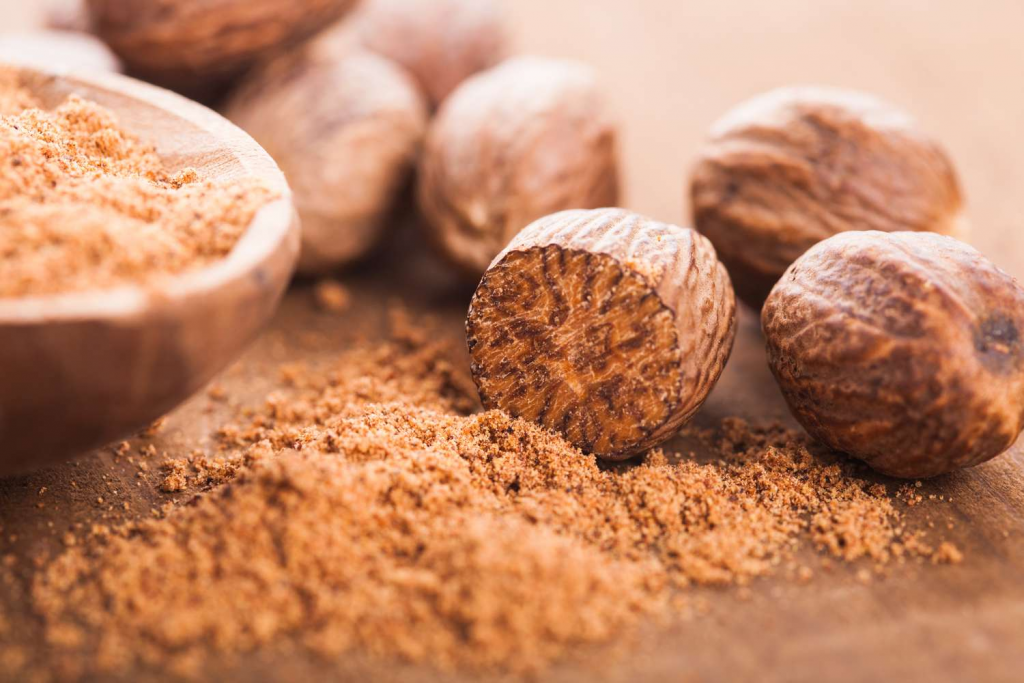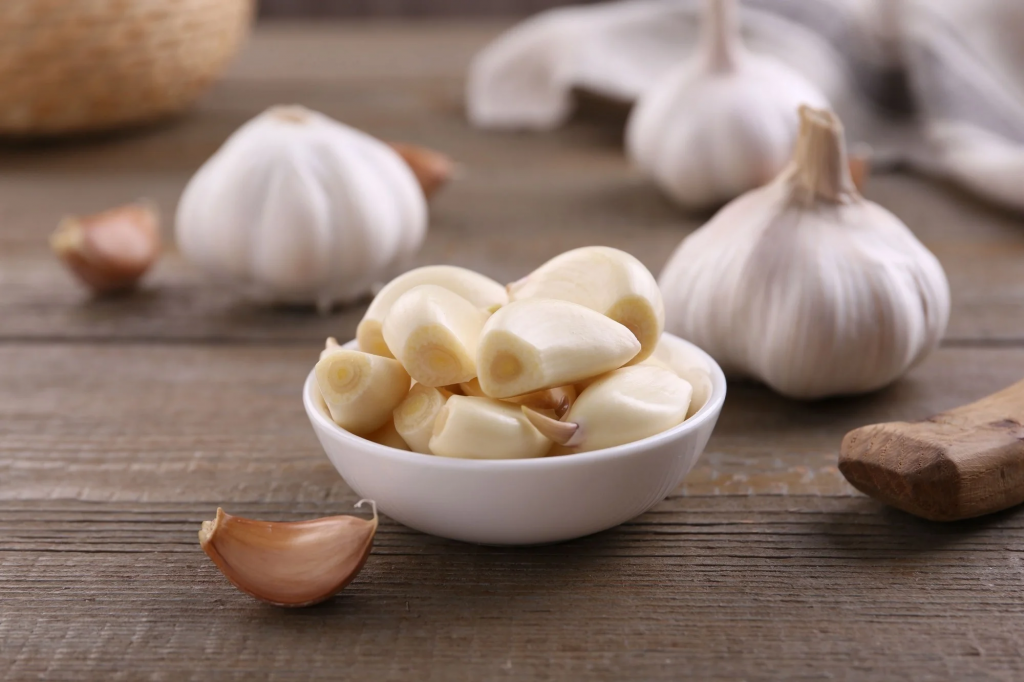Did you know that nearly 70% of adults over the age of 60 take at least one prescription medication daily? As we age, our bodies become more sensitive to what we consume—including the spices in our kitchens. While many spices provide powerful health benefits, others can be harmful when combined with age-related conditions or medications. For example, certain spices may increase blood pressure, thin the blood excessively, or irritate the stomach lining.
But here’s the good news: other spices are packed with antioxidants, anti-inflammatory compounds, and nutrients that can boost immunity, improve circulation, and even support brain function. The key is knowing which ones to avoid and which ones to embrace.
In this article, we’ll break down the four most dangerous spices for people over 60, along with four safe and beneficial ones you should consume daily. You’ll also learn practical ways to incorporate them into your meals for maximum benefit. By the end, you’ll know exactly how to season your food not only for flavor but also for long-lasting health.

Why Spices Matter More After 60
Our metabolism slows, our organs work harder, and medication use increases with age. Even seemingly harmless spices can become risky due to their effects on blood pressure, digestion, or drug interactions. At the same time, the right spices can help reduce inflammation, protect against chronic disease, and support overall wellness.
Spices are concentrated plant extracts. A little goes a long way—especially in the body of someone over 60.
4 Dangerous Spices to Avoid After 60
1. Excess Black Pepper
Black pepper is healthy in small amounts, but in excess, it can irritate the stomach lining and interfere with medications like antihypertensives or antibiotics.
Why Avoid It in Excess:
- May worsen acid reflux or gastritis
- Can interact with certain medications
- Increases stomach discomfort

2. Cayenne Pepper (and Very Spicy Chilies)
While chili peppers boost metabolism, they can cause problems for aging digestive systems. Spicy foods may trigger heartburn, stomach ulcers, and worsen hemorrhoids.
Why Avoid It:
- Irritates the gastrointestinal tract
- Raises risk of stomach discomfort and acid reflux
- Can interact with blood-thinning medications
3. Licorice Root Spice (Powdered Form)
Licorice is sometimes used as a sweet spice in teas and baked goods. But glycyrrhizin, its active compound, can raise blood pressure and lower potassium—dangerous for seniors with heart problems.
Why Avoid It:
- Raises blood pressure
- Causes fluid retention
- Risky for those on heart or diuretic medications
4. Nutmeg in High Doses
Nutmeg adds warmth to desserts, but in large amounts, it can be toxic. It contains myristicin, a compound that may cause hallucinations, dizziness, or palpitations.
Why Avoid It in Excess:
- Can cause nausea, dizziness, and confusion
- May interact with antidepressants
- Unsafe for older adults with neurological conditions

4 Spices You Should Eat Daily After 60
1. Turmeric
Turmeric contains curcumin, a powerful anti-inflammatory compound that supports joint health, brain function, and cardiovascular wellness.
Benefits:
- Reduces joint pain and stiffness
- Supports memory and brain health
- Promotes healthy blood sugar levels
How to Use:
Add turmeric to soups, rice dishes, or blend into a golden milk drink with warm milk and honey.
2. Ginger
Ginger is a versatile spice with anti-inflammatory and digestive benefits. It supports circulation and may help reduce nausea or dizziness.

Benefits:
- Aids digestion and relieves nausea
- Reduces joint pain and inflammation
- Improves circulation and heart health
How to Use:
Brew fresh ginger tea, add grated ginger to stir-fries, or use powdered ginger in smoothies.
3. Cinnamon
Cinnamon is rich in antioxidants and helps regulate blood sugar—an important benefit for seniors managing diabetes or prediabetes.
Benefits:
- Balances blood sugar
- Fights inflammation
- Supports heart health
How to Use:
Sprinkle cinnamon on oatmeal, add to baked goods, or stir into tea and coffee.
4. Garlic
Garlic has been used for centuries as a natural medicine. It helps reduce cholesterol, supports immunity, and may lower blood pressure.
Benefits:
- Strengthens immune system
- Supports heart health and circulation
- Natural antibacterial and antiviral properties
How to Use:
Crush raw garlic and add it to salads, soups, or sauces for maximum benefit.

Quick Comparison Table
| Spice | Safe or Risky? | Key Effects for Over 60 |
|---|---|---|
| Black Pepper | Risky (in excess) | Stomach irritation, drug interaction |
| Cayenne Pepper | Risky | Acid reflux, worsens gastritis |
| Licorice Root | Risky | Raises blood pressure, fluid retention |
| Nutmeg | Risky (high doses) | Dizziness, confusion, drug interactions |
| Turmeric | Safe | Anti-inflammatory, brain support |
| Ginger | Safe | Digestive aid, circulation booster |
| Cinnamon | Safe | Blood sugar balance, antioxidant |
| Garlic | Safe | Heart health, immune protection |
Real-Life Case Examples
- Martha, 65: After struggling with arthritis pain, she began adding turmeric and ginger tea daily. Within weeks, her stiffness reduced noticeably.
- James, 70: He cut down on heavy chili consumption after experiencing acid reflux. Switching to garlic and cinnamon improved both his digestion and his energy.
- Clara, 62: Managing prediabetes, Clara uses cinnamon daily on her oatmeal and found her blood sugar readings became more stable.
Practical Tips for Seniors Using Spices
- Moderation is Key: Even healthy spices should be consumed in reasonable amounts.
- Consult Your Doctor: If you’re on prescription medications, always check for possible interactions.
- Choose Fresh Over Processed: Fresh garlic or ginger provide more benefits than powdered, processed versions.
- Combine Spices for Synergy: For example, turmeric and black pepper (in small amounts) together boost curcumin absorption.
- Make It a Daily Ritual: Use spices as part of your cooking routine instead of supplements whenever possible.
Conclusion
Frequently Asked Questions
Can I still use black pepper or nutmeg at all?
Yes, small amounts are generally safe. The risk comes from excessive or daily heavy use.
What’s the best spice for joint pain?
Turmeric and ginger are both excellent choices for reducing inflammation.
Is cinnamon safe if I take medication for diabetes?
Yes, but always monitor blood sugar closely and consult your healthcare provider.
Which spice is best for heart health?
Garlic and turmeric stand out for cardiovascular support.
For adults over 60, choosing the right spices can make a remarkable difference in health and well-being. By avoiding risky ones and embracing those rich in antioxidants and anti-inflammatory compounds, you can enhance your meals and protect your body naturally.
Disclaimer: This article is for informational purposes only and does not replace professional medical advice. Always consult a qualified healthcare provider before making changes to your diet or health regimen.




